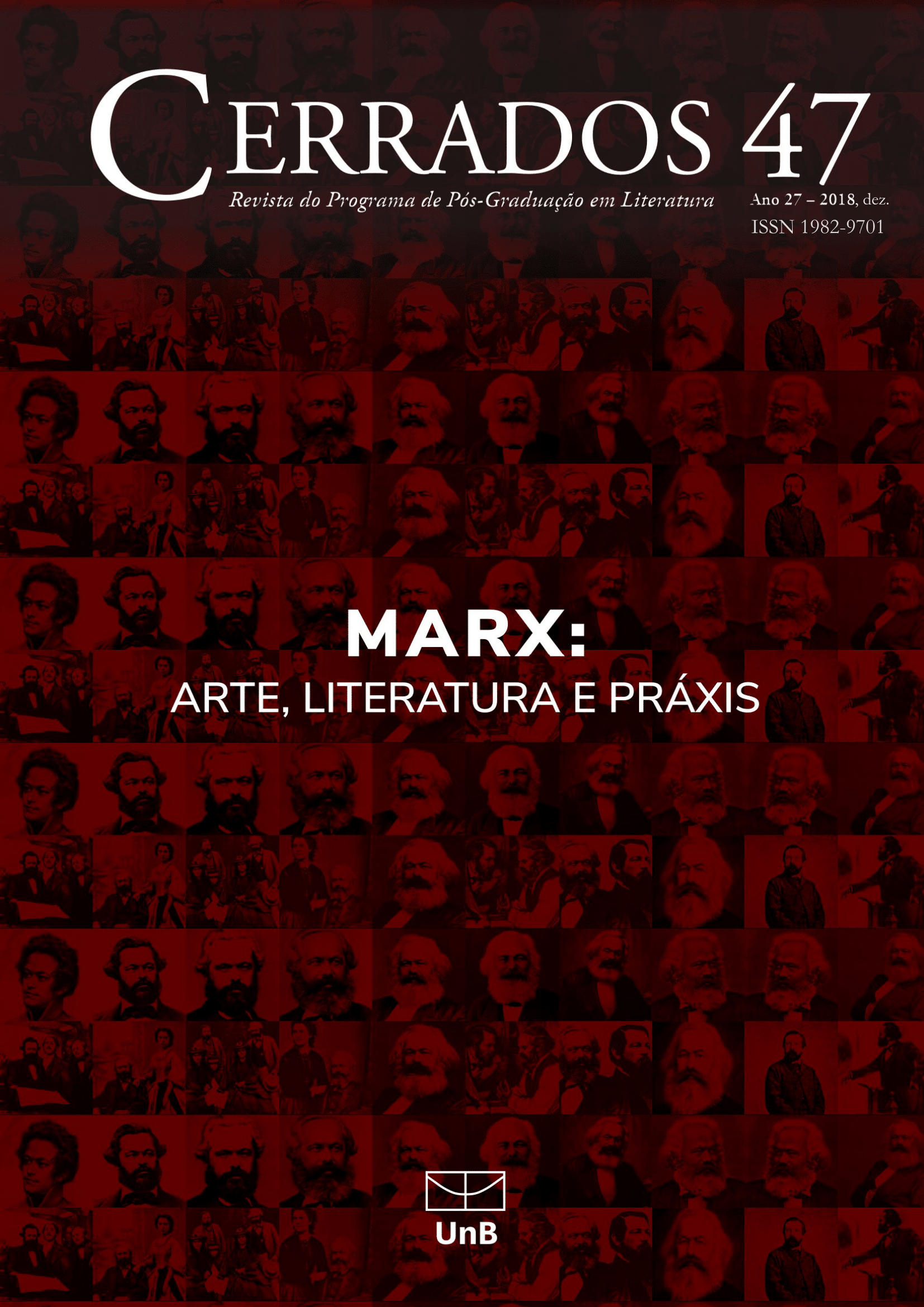Lukács and the robinsonadas of century XVIII:
industriousness like attribute of triumphant bourgeoisie
DOI:
https://doi.org/10.26512/cerrados.v27i47.19676Keywords:
Robinsonadas. Laboriosidad. División del trabajo. Protestantismo. Trabajo no alienadoAbstract
This article deals with a corpus of robinsonades of the 18th century in the light of the notion of industriousness, which Lukács develops in “The novel” (1934). The category of work is at the center of these novels, and hard work is the basic attribute of its heroes, the Robinsons. The fact that all the Robinsons are Protestants and that their work can be qualified, with Marx, as not alienated, are the two manifestations of that key concept that will be studied here.
Downloads
References
CAMPE, Joachim Heinrich. Robinson der Jüngere. Stuttgart: Reclam, 2005.
DEFOE, Daniel. Vida y aventuras de Robinson Crusoe. 2 tomos. Trad. de A. Bonanno. Buenos Aires: CEAL, 1982.
EAGLETON, Terry. Daniel Defoe y Jonathan Swift. En: ”“, La novela inglesa. Una introducción. Trad. de A. Benítez Burraco. Madrid: Akal, 2009, p. 35-73.
GOETHE, Johann Wolfgang. Los años de aprendizaje de Wilhelm Meister. Ed. y trad. de Miguel Salmerón. Madrid: Cátedra, 2000.
LUKÁCS, György. El alma y las formas. Teoría de la novela. Trad. Manuel Sacristán. Grijalbo, Barcelona, 1985.
_______. Ontología del ser social: el trabajo. Herramienta: Buenos Aires, 2004.
_______. La novela. En: Escritos de Moscú. Trad. de M. Vedda y M. Koval. Buenos Aires: Gorla, 2011, p. 29-75.
MARX, Karl. Manuscritos económico-filosóficos de 1844. Trad. de F. Aren, S. Rotemberg y M. Vedda. Buenos Aires: Colihue, 2004.
_______. Introducción a la crítica de la economía política. En: Elementos fundamentales para la crítica de la Economía Política (Grundrisse), vol. I. Buenos Aires: Siglo XXI, 2005, p. 2-33.
NOVAK, Maximilian. Robinson Crusoe’s Fear and the Search for Natural Man. Modern Philology, 58(4), 1961, p. 238-245.
SCHLAEGER, Jürgen. Die Robinsonade als frühbürgerliche ‚Eutopia‘. En: VOSSKAMP, Wilhelm (ed.). Utopieforschung. Vol. 2. Stuttgart: Suhrkamp, 1981, p. 279-298.
SCHNABEL, Johann Gottfried. La isla Felsenburg. Trad. de M. Koval. Buenos Aires: Editorial de la Facultad de Filosofía y Letras de la UBA, 2017.
WATT, Ian. Robinson Crusoe: Burguesía y novela. Trad. de Martha Eguía. Buenos Aires: Carlos Pérez Editor, 1961.
_______. Chapter 3. Robinson Crusoe, Individualism and the Novel. En: ”“, The Rise of the Novel. Berkeley/Los Ángeles: University of Califronia Press, 1962, p. 60-92.
WEBER, Max. La ética protestante y el espíritu del capitalismo. México: Fondo de Cultura Económica, 2011.
WYSS, Johann David. El Robinson suizo. Trad. de J.M. Huertas. Barcelona: Euroliber, 1991.
Downloads
Published
How to Cite
Issue
Section
License
Proibida a reprodução parcial ou integral desta obra, por qualquer meio eletrônico, mecânico, inclusive por processo xerográfico, sem permissão expressa do editor (Lei n. 9.610 de 19/2/1998 )



